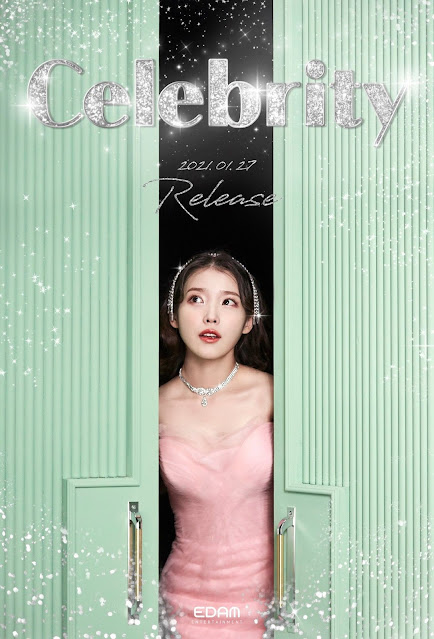Hey,
How's it going? Everything good? Yeah, okay, so I'm back with another post, ie,
LET'S LEARN KOREAN WITH IU!!!!!!!
You know, IU (Lee Ji-Eun) is my favorite actress, solo singer, idol, and my everything when it comes to my love for Korea. I actually started loving the Korean language after watching her drama 'Moon Lovers: Scarlett Heart Ryeo'.
So, in this post, I'm gonna teach you Korean with 'CELEBRITY'.
Let's start!
If you feel like watching the 'Celebrity', I'm putting the video link down here.
So, let's get started! Before that, how many IU fans are here? Don't forget to comment your names below!
세상의 모서리 - saesangui moseori
구부정하게 커버린 - gubujeonghage keoborin
골칫거리 outsider (ah ah) - golchitgeori outsider
걸음걸이, 옷차림 - georeumgeori, otcharim
이어폰 너머 playlist - ieoppon neomeo playlist
음악까지 다 minor - eumagkkaji da minor
넌 모르지 - neon moreuji
떨군 고개 위 - ddeolgun gogae wi
환한 빛 조명이 - hwanhan bit jomyeongi
어딜 비추는지 - eodil bichuneunji
느려도 좋으니 - neuryeodo joheuni
결국 알게 되길 - gyeolguk alge deogil
The one and only - the one and only
You are my celebrity - you are my celebrity
잊지마 넌 흐린 어둠 사이 - itjima neon heurin eodum sai
왼손으로 그린 별 하나 - oensoneuro geurin byel hana
보이니 그 유일함이 얼마나 - boini geu yuilhami eolmana
아름다운지 말야 - areumdaunji marya
You are my celebrity - You are my celebrity
Celebrity
You are my celebrity
지쳐버린 표정 마치 - jichyeobeorin pyojeong machi
전원을 꺼놓은 듯이 - jeonwoneul kkeonoeun deusi
심장소린 too quiet - simjangsorin too quiet
네가 가진 반짝거림 - nega gajin banjjakgeorim,
상상력, identity - sangsangryeon, identity
까지 모조리 diet, woo - ggaji mojori
넌 모르지 - neon moreuji
아직 못다 핀 - aajik motda pin
널 위해 쓰여진 - neol wihae sseuyeojin
오래된 사랑시 - oraedeon sarangji
헤매도 좋으니 - hemaedo joheuni
웃음 짓게 되길 - oteum jitge doegil
The one and only - the one and only
You are my celebrity - you're my celebrity
잊지마 넌 흐린 어둠 사이 - itjima neon heurin eodum sai
왼손으로 그린 별 하나 - oensoneuro geurin byel hana
보이니 그 유일함이 얼마나 - boini geu yuilhami eolmana
아름다운지 말야 - areumdaunji marya
You are my celebrity - You are my celebrity
발자국마다 이어진 별자리 - baljigukmada ieojin byeoljari
그 서투른 걸음이 새겨놓은 밑그림 - geu seotureun georeumi saegyeonuheun mitgeurim
오롯이 너를 만나러 가는 길 - orosi neoreul mannareo ganeun gil
그리로 가면 돼 점선을 따라 - geuriro gamyeon dwae jamseoneul ddara
잊지마 이 오랜 겨울 사이 - itjima i oraen gyeoul sai
언 틈으로 피울 꽃 하나 - eon teumeuro piol ggeut hana
보이니 하루 뒤 봄이 얼마나 - boini haru dwi bomi eolmana
아름다울지 말야 - areumdaolji marya
You are my celebrity - You're my celebrity
Celebrity
You are my celebrity
Okay, so now my views upon the song.
The summary, or the meaning I felt after singing the song is,
The whole song reminds us not to feel shy in what we do. You all are like celebrities and keep your heads up, always. Don't let anybody run over you. Also, you don't have any idea about the all bright places and lights above your head, at times when you keep your heads down. So, my friend, always remember that you are a celebrity to me.
"Don’t forget among the cloudy dark
You’re a star painted with a left hand
Can’t you see how beautiful
A true uniqueness can be
You are my celebrity"
And as conclusion, if anybody has any suggestions or corrections, please ping me up in the comment section. I'll always make sure to reply you all without delay.
Have a nice day. Bye!




























